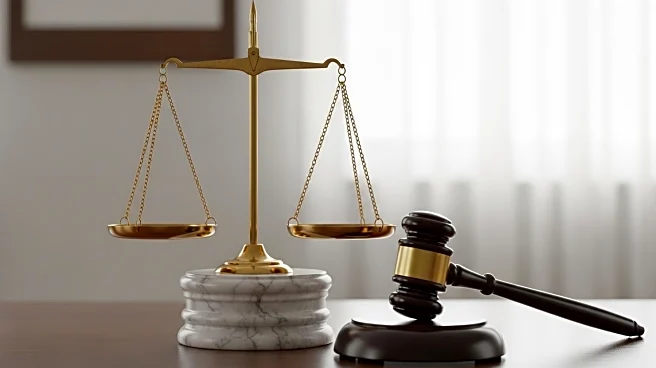What's Happening?
The 9th U.S. Circuit Court of Appeals is set to decide on the legality of deploying National Guard troops to Portland, Oregon, following a temporary restraining order issued by U.S. District Judge Karin J. Immergut. The Trump administration has appealed the judge's decision, arguing that protests at a U.S. Immigration and Customs Enforcement facility pose a threat to law and order. The administration claims that the judge's order impedes the President's ability to protect federal officials enforcing federal law. The appeal follows Immergut's ruling that the protests do not constitute a rebellion and can be managed by local law enforcement.
Why It's Important?
The decision by the 9th Circuit Court will have significant implications for federal authority and state sovereignty. If the court sides with the Trump administration, it could set a precedent for increased federal intervention in state matters, particularly in situations involving civil unrest. This could impact the balance of power between state and federal governments, potentially leading to more frequent federal deployments in states against their wishes. Conversely, if the court upholds the restraining order, it would reinforce state autonomy and limit federal overreach, preserving the traditional role of states in managing local law enforcement.
What's Next?
The appeals court's decision is expected to come swiftly, given the urgency of the situation. If the court overturns the restraining order, President Trump may proceed with deploying National Guard troops to Portland, potentially escalating tensions between federal and state authorities. This could lead to further legal challenges and public protests. On the other hand, if the court upholds the order, the Trump administration may seek alternative legal avenues to assert federal authority, possibly invoking emergency powers or appealing to higher courts.
Beyond the Headlines
The broader implications of this legal battle extend to the interpretation of federal powers under the Constitution. The case highlights the ongoing debate over the use of military forces in civilian contexts and the potential erosion of civil liberties. It also raises questions about the role of the judiciary in checking executive power and the impact of political polarization on legal decisions. The outcome could influence future administrations' approach to handling civil unrest and federal-state relations.










